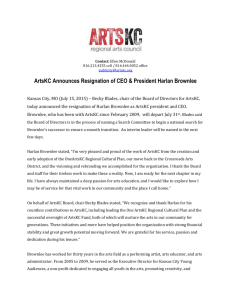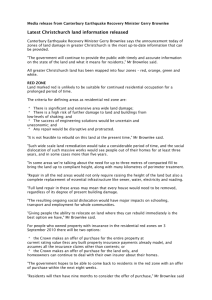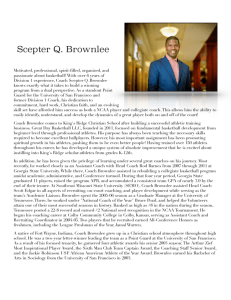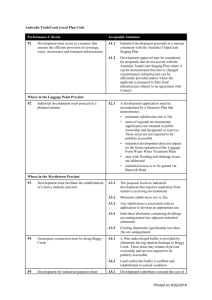www.foodandsocietyfellows.org 'Go Local' By Scott Rochat, Quotes
advertisement
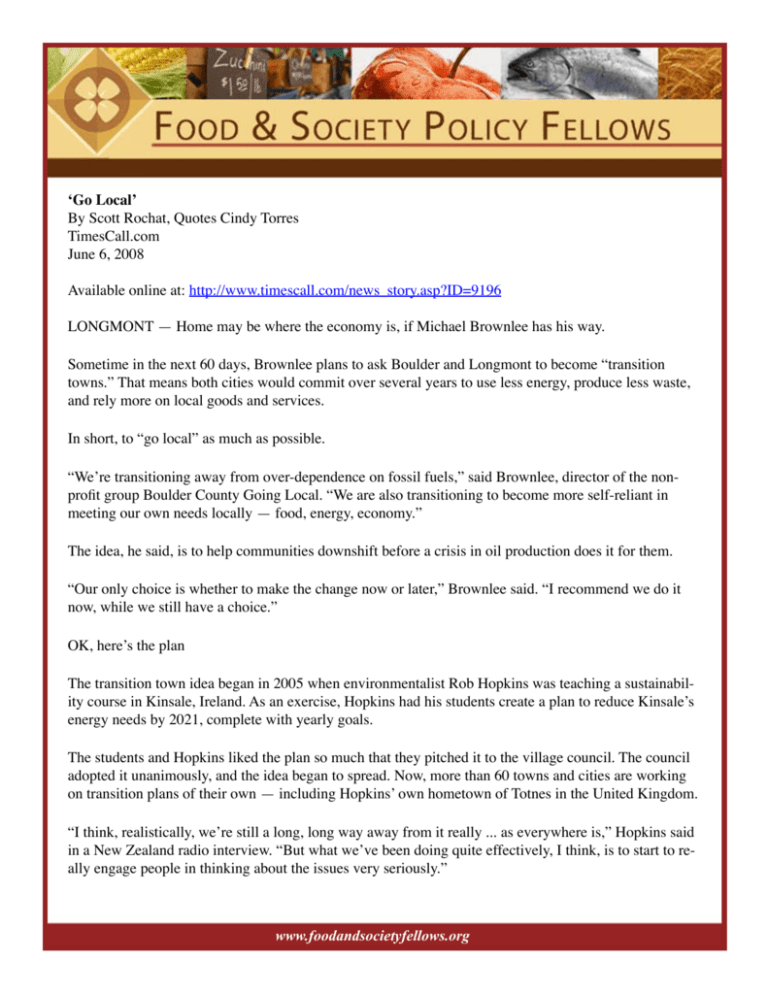
‘Go Local’ By Scott Rochat, Quotes Cindy Torres TimesCall.com June 6, 2008 Available online at: http://www.timescall.com/news_story.asp?ID=9196 LONGMONT — Home may be where the economy is, if Michael Brownlee has his way. Sometime in the next 60 days, Brownlee plans to ask Boulder and Longmont to become “transition towns.” That means both cities would commit over several years to use less energy, produce less waste, and rely more on local goods and services. In short, to “go local” as much as possible. “We’re transitioning away from over-dependence on fossil fuels,” said Brownlee, director of the nonprofit group Boulder County Going Local. “We are also transitioning to become more self-reliant in meeting our own needs locally — food, energy, economy.” The idea, he said, is to help communities downshift before a crisis in oil production does it for them. “Our only choice is whether to make the change now or later,” Brownlee said. “I recommend we do it now, while we still have a choice.” OK, here’s the plan The transition town idea began in 2005 when environmentalist Rob Hopkins was teaching a sustainability course in Kinsale, Ireland. As an exercise, Hopkins had his students create a plan to reduce Kinsale’s energy needs by 2021, complete with yearly goals. The students and Hopkins liked the plan so much that they pitched it to the village council. The council adopted it unanimously, and the idea began to spread. Now, more than 60 towns and cities are working on transition plans of their own — including Hopkins’ own hometown of Totnes in the United Kingdom. “I think, realistically, we’re still a long, long way away from it really ... as everywhere is,” Hopkins said in a New Zealand radio interview. “But what we’ve been doing quite effectively, I think, is to start to really engage people in thinking about the issues very seriously.” www.foodandsocietyfellows.org The exact measures vary from town to town and plan to plan. Some have built community gardens, so that food doesn’t have to be trucked in from miles away. Some have taken the waste from one industry and tried to find another that can use it. Totnes even adopted its own local currency — a way of encouraging people to buy close to home. The goals can vary, too. A town might decide that by the end of its plan, it wants to become a net energy producer, or to be a zero-waste community, or to buy 50 percent of its food within 100 miles of home. It’s all up to the local community. “There’s no downside in it,” Brownlee said. “This is not a political activist movement. This is real down-home community.” Sticking together For Cindy Torres of the Longmont Farmers Market, it all comes down to that community — and to choices. “I think there are a lot more reasons to support the local economy than petrol,” Torres said. “When you support farmers at the farmers market, you support local choices. You keep your dollars local. You’re supporting your cultural structures where you live. ... I don’t know that our global system is necessarily so bad, but it became the only method, and we moved away from local alternatives.” She agreed with Brownlee that it’s important for a community to be resilient, to have a safety net in case things go awry. But she also didn’t expect to make a complete break with the global economy — saying “You must go local,” Torres said, is as restricting as saying “You never can.” That said, Torres does believe that a more local perspective, such as that advocated by the transition town movement, is good for a community. “When you have local systems, you also have systems that are close to the people,” she said. “That promotes citizenship.” Meeting the challenge Tim Payne won’t lie: It can be expensive to go local. “There’s a bit of a financial element to it,” said Payne, who co-owns the Terroir restaurant with his wife, Melissa Newell. The restaurant buys food from local suppliers whenever possible. www.foodandsocietyfellows.org “We’ve continued to pay a little bit more for the things we purchase ... but the quality’s better, I think,” Payne said. “You do have to be more flexible. (Local producers) may have one thing available one day and another thing the next. ... Our menu changes quite frequently.” To him and his wife, the transition town initiative sounded ideal. The more people that try to keep things close to home, he said, the easier it gets — and, he added, the easier it gets on the environment. “There’s not the negative impact of trucking things in from Utah, Idaho or California,” he said. Come together? Boulder County Going Local announced its intentions about a week ago, in a meeting at the Magellan Center that kicked off its 2008 “Going Local” campaign. Representatives came from several groups with an interest in local effort, environmental issues or both, such as Eco-Cycle, the Colorado State University Extension office and the Longmont Small Business Administration. “The whole ‘going local’ movement — part of it’s out of necessity,” said Kary Schumpert, Eco-Cycle’s outreach coordinator. “But I think it’s also a step out of hope, to gain the community we seem to have lost.” “If we all join hands and move forward, we can make a great impact,” said Tammie Bradley, president of the LSBA, which is promoting “Think Local Week” from June 14 through June 22. Longmont City Councilman Brian Hansen, who attended the meeting at the Magellan Center, could not be reached for comment. If the council does decide to pursue a transition plan, it would be one of the first in North America, according to www.transitiontowns.org, an online home for the movement. Its list also includes Sandpoint, Idaho, but all of the other transition towns or towns-to-be are in the British Isles, New Zealand and Australia. Boulder County Going Local hasn’t yet set a date to approach the Longmont and Boulder city councils, beyond Brownlee’s 60-day estimate. “We want to move it as quickly as possible,” Brownlee said. “But we also want to do it right.” Scott Rochat can be reached at 303-684-5220 or srochat@times-call.com. www.foodandsocietyfellows.org
